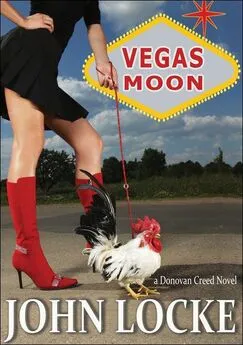John Locke - Now & Then
- Название:Now & Then
- Автор:
- Жанр:
- Издательство:неизвестно
- Год:неизвестен
- ISBN:нет данных
- Рейтинг:
- Избранное:Добавить в избранное
-
Отзывы:
-
Ваша оценка:
John Locke - Now & Then краткое содержание
Now & Then - читать онлайн бесплатно полную версию (весь текст целиком)
Интервал:
Закладка:
Jack laughed. “I know, smells like hell fire, don’t it, girl? But it’s just the sulphur pits that line these coves. We’ll move past them soon.”
He kept to the center of the river to avoid the thick, green pond scum that had all but taken over the river at this point, and the ravenous mosquitoes that hugged the verdant shore.
Rugby’s ears pricked as they neared the final bend that led to their destination. Jack knew what his companion had heard. A moment later, he heard it too.
Children’s voices.
Though he knew whose children they were, he stopped rowing, and kept his oars in the water to hold the boat in check. He listened a moment, studying the cadence of the voices. They sounded enthusiastic.
“Rugby, make nice, for they’ve assembled a landing party to greet us.”
The cat looked at him and Jack said, “I don’t know how they knew I was coming. But they always know. It’s probably Rose, the witchy one. She senses things.”
Chapter 4
THE LANDING PARTY, Jack knew, would number six: George and Marie Stout, their three young children, and Johanna, the young girl who lived and worked with the Stouts. Jack let out his signature whistle before rounding the final bend, and the voices immediately stopped, their minds processing the sound. Then, almost instantly, they began cheering. Jack had taught Johanna and the Stouts this particular whistle as a means of identifying themselves from a distance. He had taught them a danger whistle as well.
The group had gathered at the Stout’s dock, thirty yards west of George and Marie’s outpost. For years the dock had been the primary means of accessing the outpost by the river families that settled on the banks north of this location. But the previous year’s hurricane had deposited so many trees that the river north had become virtually impassable. These days, those who visited the outpost were forced to walk or ride the rough trail on horseback. Though the post was isolated, people willingly made the trip to obtain the one thing George had that they couldn’t get elsewhere.
Medicine.
Medicine, the most prized and valuable commodity in the colonies, had been the foundation for Jack and George’s close friendship. Other than gold, Jack’s principal reason for attacking ships was to acquire medicine, which he sold and traded for goods and services. He had two paying customers in St. Alban’s: the Mayor’s physician and Thomas Griffin, who owned the local apothecary. He also traded medicine with George Stout in return for information regarding the town’s current attitude toward pirates, the unlimited use of George’s horses, and care for Johanna, whom Jack had rescued from an abusive family two months earlier.
When the greeters saw Jack making the final turn, they cheered. But when they saw Rugby, George and Marie crossed themselves and spit over their shoulders. Even the children, accustomed to all manner of woodland creatures, crossed and spat, and hesitated to approach the boat.
Johanna was the lone exception. She sported a smile that seemed to occupy her entire face. When she bent down to accept the bow of the boat, she and Rugby eyed each other closely. Jack said, “This is Rugby. She’s yours, if you want her.”
Johanna squealed with joy, which caused Rugby to arch her back and hiss. One of the Stout boys yelped at the sound, and Marie recoiled in horror. But undaunted, Johanna put her hand out, and waited for Rugby to respond. Eventually the cat bent her head against Johanna’s hand without launching an attack.
“She likes you,” Jack said.
Looking pleased, Johanna steadied the boat and Jack climbed out. Giving the cat a wide berth, the Stouts gathered around Jack. Marie hugged him vigorously, and George clapped him on the back.
“Good to see you, Henry,” he said, for that’s the name Captain Jack used among the locals.
“Aye, and you and your family as well,” Jack said. He looked at Johanna and nodded. “And you, miss. How are you?”
Johanna had picked Rugby up and cuddled her. Upon being addressed by Jack, she blushed and curtsied slightly. “The Stout family has taken excellent care of me, sir, and Mrs. Stout has been learning me to cook and clean.”
“Such are good skills to have,” Jack said, approvingly. He and Johanna looked at each other a moment, as if unsure what more to say. By contrast, the children were full of questions, most of which involved the cat.
Seven-year-old Samuel said, “Why do you call him Rugby?”
“She’s named after her former owner, Colonel Rugby, of Glenshire.”
“And what became of the Colonel?” the ultra-precocious, ten-year-old Rose asked. “Was it ghastly?”
“Rose, hush!” her mother scolded. “If Henry wants us to know what became of Colonel Rugby, it’s for him to say, and not for us to ask.”
Rose pointed a finger at the cat. “No matter,” she said. “I suspect we’ll all be dead by morning.” Of all the Stout children, Rose was the least inclined toward optimism.
“Mind your tongue, child, or I’ll cuff your ears!” Marie said, though Rose looked as though she might welcome such a cuffing. She was, in all respects, an unusual child, and her siblings weren’t the only ones who regarded her as such. George and Marie learned early on to distance Rose from other families, after hearing visitors question whether she might be a witch.
Rose was not one of the Stout’s birth children. According to George, he and Marie had found her four years earlier, wandering the woods, speaking in tongues. They took her in as they would any stray. From her first days with the Stouts, Rose had shown a particular fondness for heights and could routinely be found high in the branches of trees. According to Samuel, Rose could talk to spiders, rats and snakes. Jack, though far less superstitious than most, always gave Rose a wide berth.
Jack watched Samuel tie his boat to the pier before speaking. “Colonel Rugby was set upon by either the French or pirates. I came upon their smoldering ship quite by accident, while fishing.”
He and George exchanged a look as Jack continued his story. “When I boarded, I found not a single person or thing on it, apart from this strange cat-like creature. I did manage to salvage a portion of the Captain’s journal and read mention of Colonel Rugby’s strange, furless cat. Not knowing the cat’s original name, I named her for her former owner, and she seems to have accepted it without protest.”
To Johanna he said, “Of course, she’s yours now, miss, and you may change her name as suits you.”
Rose said, “We could call her Calamity!”
“Calamity the Cat?” Samuel said. “That’s obscene!”
“She’s nakey!” said four-year-old Steffan.
George Stout said, “She does appear to be naked, compared to other cats I’ve seen.”
Marie scolded her husband. “George, the children are present!”
George nodded and said, “Odd looking animal, nonetheless.” He paused a moment. If he knew of any news Jack should worry about, he’d have told it by now. Instead, he clapped his hands and said, “Let’s head to the house, Henry. I’ve a bottle of rotgut that’s still got some kick left in it.”
After carefully depositing Rugby on the dock, Johanna sidled up to Jack. It was clear from her body language and attentiveness that she found Jack not only attractive, but also desirable. While he understood it was the way of young women to want to marry and raise children, he loved his carefree life and preferred not to settle down in the near future. Had he met Johanna earlier, who knows what might have transpired? After all, she was sweet and charming, could hunt, fish, cook and sew, could skin animals and take care of children, was eager to work, was strong, and pleasing to the eye in all respects. In short, she possessed all the qualities that would make any man happy. But Jack resolved not to take advantage of Johanna, or lead her on, since he had another young lady in his sights, a girl named Abby Winter, whose mother had a gray face. Jack planned to ride to the river crossing to meet Abby early the next morning, and, if it pleased her, he intended to give her a good fucking.
Johanna leaned into Jack and rubbed the side of her face against his chest. He gave her a light, uncomfortable hug for her trouble, and they began walking toward the Outpost.
Samuel worked up his courage and leaned over to pet the cat. “Does she bite?” “She does,” Jack said. “Fiercely.”
Samuel paused with his hand a foot from the cat. “You think she’ll bite me?”
“I’m certain of it.”
“Even if I’m really nice and gentle?”
“Even if. She’s quite independent, having survived a ship fire and starvation. Not many can claim that. After I rescued her she coughed up bits of rope and pitch, to show me what she’d eaten to survive.”
“Devils eat pitch,” said Rose. “They thrive in fiery places, too.”
George said, “Rose, you’re beginning to alarm us. Henry wouldn’t bring a demon into our midst, would you Henry?”
“She’s a sweet cat,” Jack said. “A biter? Absolutely. But not a demon.”
“There you have it,” said Marie. “Now let’s hear no more talk of devils and demons.”
As they headed down the dock toward the outpost, Jack said, “How’d you know I was coming?”
They all looked at each other in a funny way, but no one spoke on it.
Chapter 5
The cat—or whatever it was—adapted to its new surroundings quickly, and it dawned on Jack that perhaps cats had a natural preference for solid ground, and maybe this had contributed to Rugby’s churlish behavior on board The Fortress . She moved gracefully around the yard surrounding the outpost, or “Stoutpost,” as Jack liked to call it.
“What’s become of your dogs?” he said.
“Lost one to a gator, we think. Sold the other one,” George said.
“That works to Rugby’s advantage.”
“Till we get the next one, anyway. They wander in here regular, half mad from hunger.”
Jack smiled at Johanna.
“Rugby’ll be fine. She can hold her own.”
Johanna returned the smile.
George and Marie’s tiny house and store were the southernmost dwellings on St. Alban’s peninsula, a land mass of roughly thirty-six square miles, bordered, in part, by the Little River.
The men sipped their whisky at the table and watched Marie and Johanna tend the dinner pot. Rose had wandered off somewhere, and Samuel and Steffan were sharpening dinner knives.
“How’s she fitting in?” Jack said.
“Johanna? She’s a blessing.”
“Any problems with her father?”
“Haven’t seen him nor the wife since you threatened to kill them if they ever came back.”
“That’s good. I meant it. There’s no excuse for a man to beat his children.”
Jack stared at Johanna, thinking about the type of woman she’d grow up to be. She was too young for Jack, at least in his mind, but in a few years she’d be an ideal wife, devoted and grateful to him, and would probably be a wonderful mother to a brood of children as well.
George had noticed him staring at Johanna. He said, “I’ve only got the one bedroom.”
Jack nodded. “That’ll do.”
George arched an eyebrow but said nothing.
Johanna, whose hearing was excellent, smiled at the comment, but didn’t trust herself to peek at Jack. She was a thin, fair-skinned girl who’d come a long way from the waif he’d met two months earlier. Johanna had filled out some, thank the good Lord, and her face had gained color. She was a fine specimen, Jack thought, with her fair, unblemished skin, large green eyes and wavy saddle brown hair made lighter by the scorching sun. The work dress she wore every day was gray and made of stout, twilled cotton that seemed too course for her delicate features. She had an easy smile and calm disposition, which was hard to fathom, given her past history of physical abuse by her parents. He’d been many places, seen many things, but not so many domestic scenes or settings. It was nice to see this healthy family working together to get food on the table.
Читать дальшеИнтервал:
Закладка:









